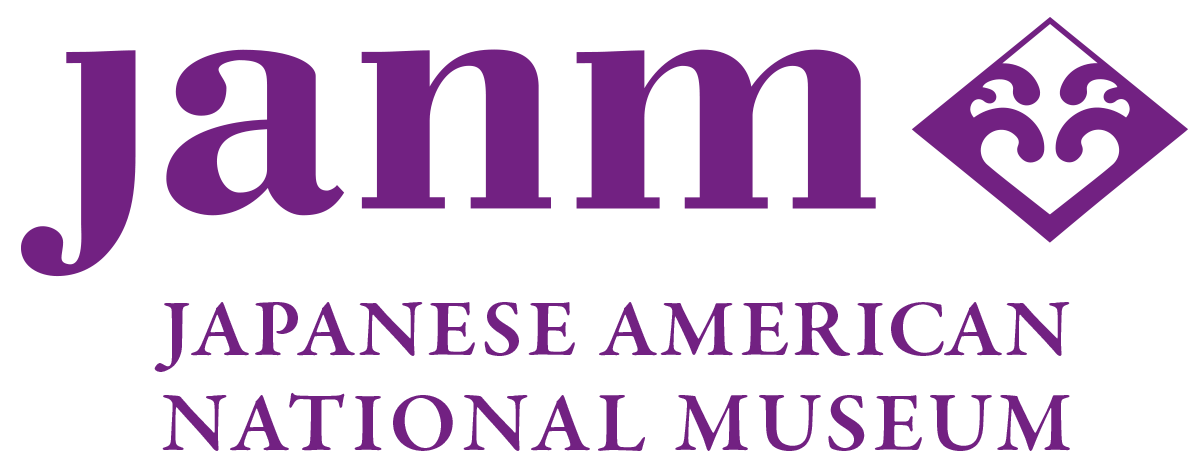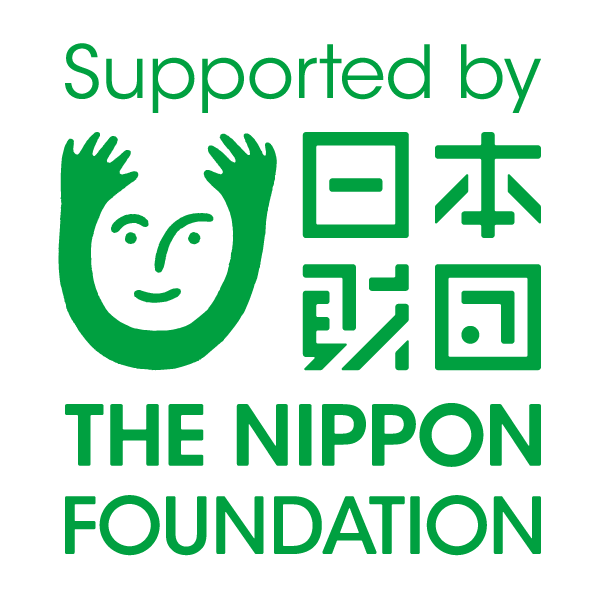A Day in Liberdade: The Nihon Machi of São Paulo
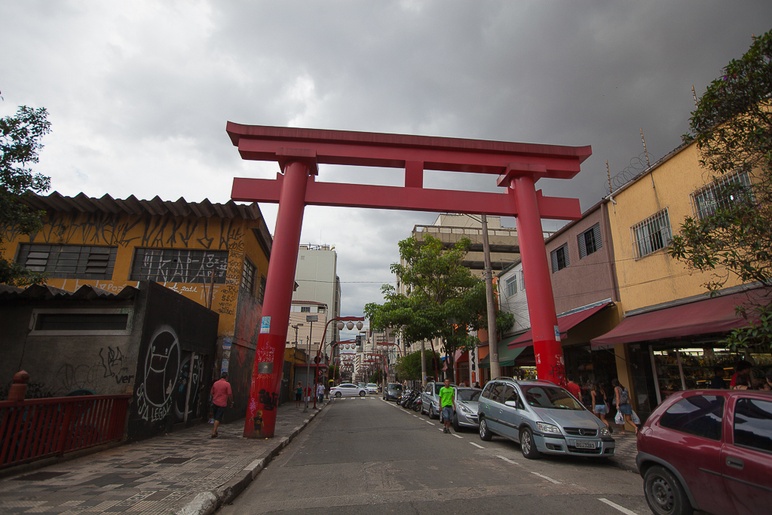
|
||
| Licensing | ||
I first became aware of the Japanese community in Brazil when I attended a judo event at the 1984 Olympics in Los Angeles, California. There I was intrigued to see athletes like Sérgio Sano, a judoka who represented the Brazillian National team. Since that day, I added a trip to Brazil to learn about the Nikkei presence in Latin America on my list of things to do. On December 8, 2014, I finally had the opportunity to pay a visit to Bairro da Liberdade, São Paulo’s Japan town. The Japanese community in Brazil has deep historical origins in Liberdade. In a contemporary sense, Liberdade stands out as a very multi-culturally rich, vibrant public place with many kinds of Japanese-Brazillian storefronts, restaurants, community and religious centers, and small businesses including a museum dedicated to the history of Japanese Immigration—Museu Histórico da Imigração Japonesa no Brasil. Liberdade is truly a symbol of the resilience of the Nikkei community abroad. The following are a few photos from my brief time in Liberdade. —Thomas Sakai Tsutsumoto Acknowledgements: I would like to personally thank Ms. Luciana Yotsumoto Shimizu Rodrigues for her guidance in Liberdade. I would also like to express my deepest gratitude to Gui Alves and Rachel Mamiya-Hernandez for their language assistance in preparation for this adventure. Muito obrigado a todos!
Slides in this album |
|
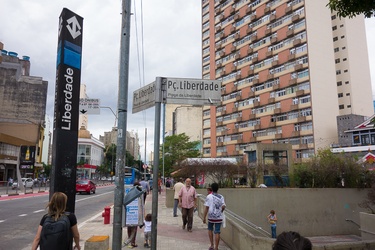
|
A Day in Liberdade: The Japantown of BrazilSubway arrival area at Praça da Liberdade—Liberdade Plaza and Avenida da Liberdade.
Praça da Liberdade |
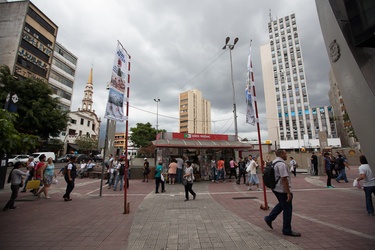
|
Praça da Liberdade - Liberdade PlazaBusy Liberdade Plaza subway terminal entrance.
Praça da Liberdade - Liberdade Plaza |
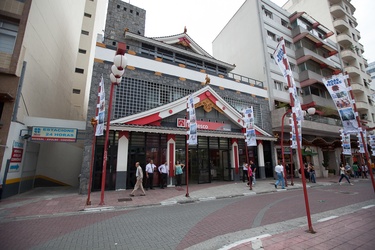
|
Japanese-style architectural designsBanco Bradesco Liberdade. Japanese-style designed Bradesco bank.
Japanese-style architectural designs |
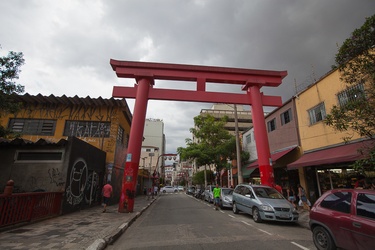
|
Torii on Rua Galvão BuenoThe torii “gate” is a major landmark symbol of Liberdade.
Torii on Rua Galvão Bueno |
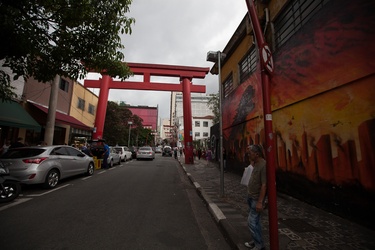
|
Torii and Godzilla MuralMan standing in front of Godzilla mural and torii.
Torii and Godzilla Mural |
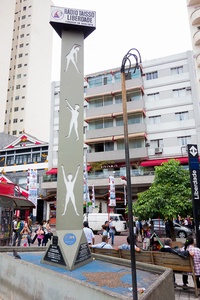
|
Radio Taisso Tower MonumentRadio Taisso Tower Monument for the popular Japanese radio-broadcasted exercise program.
Radio Taisso Tower Monument |
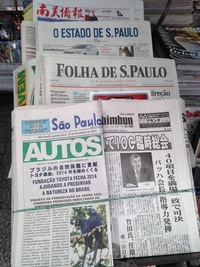
|
Multi-lingual NewspapersThe newspapers written in Portuguese, Japanese, and Chinese reflect the diversity of Liberdade.
Multi-lingual Newspapers |
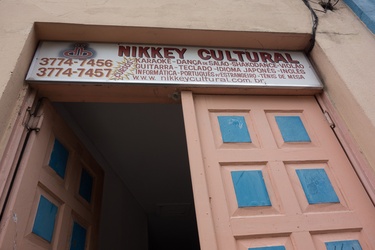
|
Nikkey CulturalThe Nikkey Cultural Group Center aims to bring participants with a common interest in Japanese culture through activities such as karaoke, music, and dance together. To learn more, see their website: www.nikkeycultural.com.br
Nikkey Cultural |
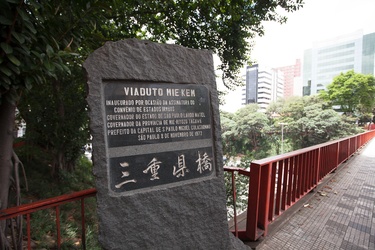
|
Viatudo Mie Ken MonumentMie Ken Viaduct monument symbolizing the connection between the Mie Prefecture of Japan and the State of São Paulo, Brasil on Rua da Gloria.
Viatudo Mie Ken Monument |
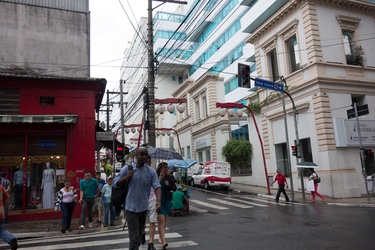
|
Japanese Street Lights over a Busy intersectionJapanese-style lights hover over a busy intersection.
Japanese Street Lights over a Busy Intersection |
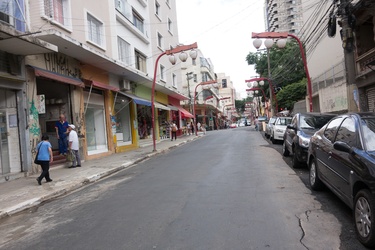
|
SapatariaMen socializing at a Japanese-style sapataria (shoe store). |
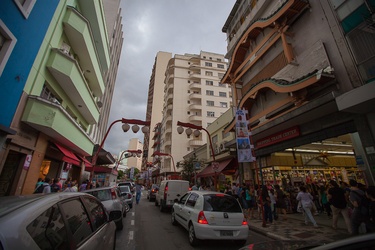
|
Rua da GalvãoLight traffic and markets lining the main thoroughfare through Nihon machi.
Rua da Galvão |
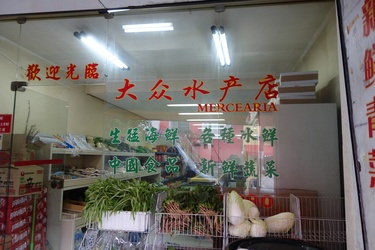
|
Chinese MerceariaChinese Mercearia (grocery store). Liberdade is multi-cultural and includes Chinese businesses.
Chinese Mercearia |
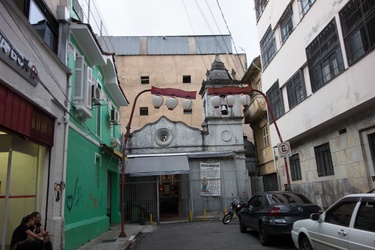
|
Capela Nossa SenhoraCatholic Chapel surrounded with Japanese-style street lights in Liberdade.
Capela Nossa Senhora |
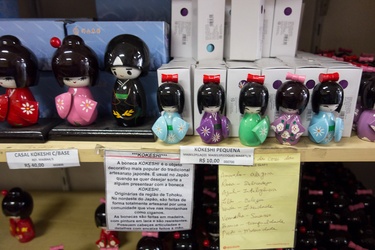
|
Kokeshi dollsSmall kokeshi dolls of various colors. In this set, each color symbolizes a characteristic or personality trait.
Kokeshi dolls |
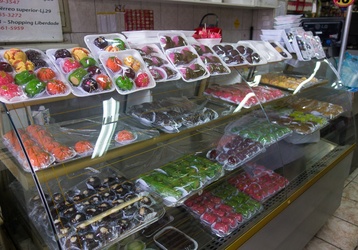
|
Manju confectionsManju Japanese confections in a Liberdade store.
Manju confections |
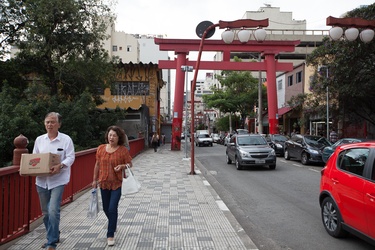
|
Another view of the ToriiA couple walks past the torii.
Another view of the Torii |
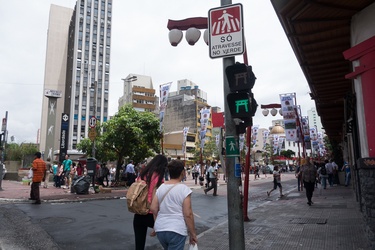
|
Busy Liberdade PlazaBusy intersection fronting the Liberdade Plaza. Notice the torii-style cross walk lights.
Busy Liberdade Plaza |
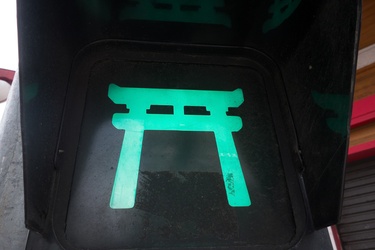
|
Torii crosswalk lightJapanese-style designs characterize everything from architecture to street lights in Liberdade.
Torii crosswalk light |
 holokai
holokai
 A Day in Liberdade: The Nihon Machi of São Paulo
A Day in Liberdade: The Nihon Machi of São Paulo
 Journal feed
Journal feed